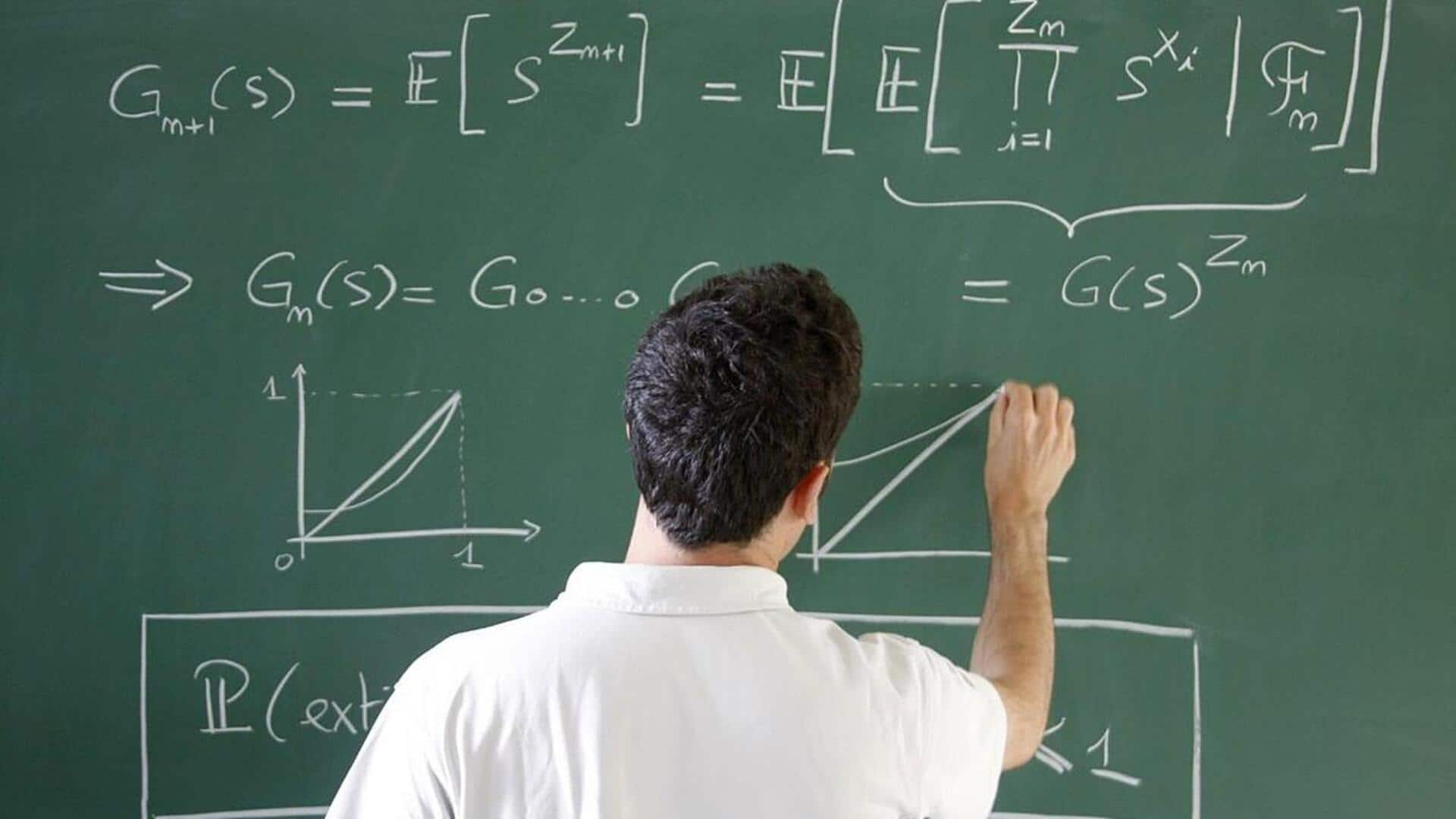
'Alien's language' decoded: Former Huawei engineer cracks complex math theory
What's the story
Zhou Zhongpeng, a 28-year-old engineer from China, has made a major breakthrough in decoding the Inter-universal Teichmuller Theory (IUT). The complex mathematical theory, also described as the "alien's language," has baffled mathematicians for over a decade. The IUT was first proposed in 2012 by Japanese mathematician Shinichi Mochizuki as proof of the ABC conjecture, a major unsolved problem in number theory. IUT is a highly complex mathematical framework, spanning over 2,000 pages and employing extraterrestrial-like notation.
Theory complexity
IUT: A unique mathematical language
The IUT is a unique mathematical language that links addition and multiplication of whole numbers in unexpected ways. If proven, it could simplify or even make other difficult theorems redundant. However, the theory is so complex that only about 20 experts worldwide have been able to engage with it. Zhou's work on IUT has surprised leading experts and could transform an abstract mathematical dream into a practical tool for reshaping mathematics and beyond.
Career shift
Journey from tech worker to mathematician
Zhou, a former doctoral student turned tech worker, has formal training in mathematics up to at least master's level. He left his PhD program at Peking University in 2023 with a master's degree and joined Huawei as an algorithm engineer. Despite working long hours, he continued studying IUT. In September 2024, Zhou left Huawei to pursue his passion for mathematics. After five months of research, Zhou proposed refinements and new applications of the theory in a detailed paper.
Theorem proof
Zhou's work on Fermat's Last Theorem
Zhou has used IUT to prove most cases of the generalized Fermat's Last Theorem. Proposed in 1637, Fermat's theorem states that no three whole numbers a, b, and c can satisfy the equation an + bn = cn for any whole number n greater than two. British mathematician Andrew Wiles proved it in 1995 using modern tools from algebraic geometry and number theory. However, his proof ran 130 pages long. Zhou's method could prove Fermat's theorem in just one page.
Potential impact
It could revolutionize mathematics and beyond
Experts believe that Zhou's work on IUT could change the way we think about mathematics, making hard problems easier to solve and opening up new ideas. It could also lead to new tools for cryptography, quantum computing, and physics. However, Zhou himself is modest about his contributions, saying they are "based on the research of predecessors" and hopes to make "modest contribution" to the relevant field. His breakthrough could make the ABC conjecture more accessible and usable in computational contexts.